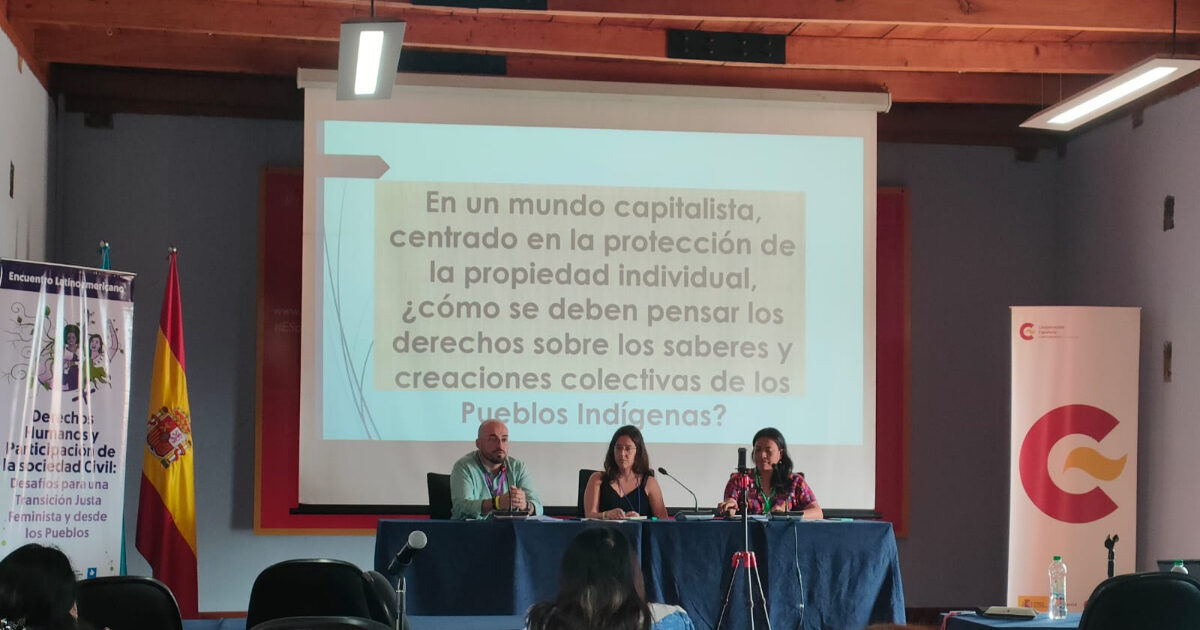FromAmerica Latina It arrived in April an important statement promoted by various social movements, universities and research centres, who wanted to speak loudly and clearly on the importance of implementing a international cooperation not colonial.
Through the document (which sees the signature among others of Karina Batthyany, executive director of the Latin American Council of Social Sciences – Clacso) the importance of recognizing the colonial legacies in North-South relations, characterized by exploitation, political subordination, structural racism and contempt for native knowledge. A context in which the management of International Cooperation has perpetuated these power relations influenced by colonialitywhich are reflected in the control of resources and the imposition of programs and agendas external to the implementation contexts.
On the other hand, however, everything said is specified in the press release it doesn’t diminish and it does not undermine the efforts (considered very positive) that some NGOs from the so-called “Global North” of the world are making to address these structural problems and propose sustainable solutions. To trace a possible itinerary, we highlight at least 6 points on which to work to decolonize international cooperation and transform it into a space of repair and horizontal and equal intercultural dialogue.
Read also from Diego Battistessa’s blog
Violence in Latin America continues to be the protagonist: a worrying situation
First of all, we specify the need to define agendas and intervention priorities based on local knowledge of the contexts and based on the desires for systemic change of the actors involved. Secondly, the importance of fairness is underlined redistribution of resources and greater participation of organizations from the so-called “Global South” of the world in their management. At point three we find the rethinking and change of the management models of International Cooperation to eliminate access barriers and the perpetuation of dependency dynamics. Finally, points 4, 5 and 6 refer to real and sincere commitment in building long-term processes, processes that are effective for access to human rights and which cause structural changes; to the priority of the protection and centrality of life in new scenarios of change that generate potentially dangerous situations (especially for local leaders), and to the recognition and valorization of native knowledge to achieve truly inclusive and sustainable development.
The initiative is not isolated and is rooted in a movement that has existed for years, not only in America Latina, pushes towards the rethinking of a paradigm of international cooperation that is still too tied to the cooperation dynamics of the past century. For example, it has already been operating in this line for more than a year The Sherwood Way. A platform for reflection, learning and collaboration for international NGOs which puts the debate on decolonization at the centre. Not an easy mission, the one carried out by this group of professionals who have intertwined the actors and projects of international cooperation from different spaces and perspectives.
And a heterogeneous team composed of Damaris Ruiz and Cecilia Millán (two Latin American feminists of different generations who have dedicated their careers to the introduction of feminist principles in NGOs), Sergio Calundungo (an Angolan activist, academic and specialist in the cooperation sector), Patricia Paéz (coordinator of the blog of The country “3500 Million”one of the most read in the sector in the Spanish-speaking world), Pablo Tosco (recognized photojournalist with enormous experience working with NGOs), Pablo Andrés Rivero (Bolivian political scientist expert in communication campaigns), Claudia Caselli (the only Italian in the group and responsible for the research part within the platform) and Asier Hernando Malax-Echevarria, founder and director of The Sherwood Way after having led Oxfam’s institutional transformation processes for Latin America for years. A mission – I was saying – which, as we can read from the websiteaims to “contribute to the transformation of the international cooperation sector to adapt to the enormous challenges of the current context”.
Read Also
Funds for health and education, security through repression: what is the model of Nayib Bukele, the re-elected president of El Salvador
In general, the debate aims to shake the foundations of a certain way of thinking and doing cooperation, where a verticality of the process of decision making. However, this is not just a systemic problem that concerns large organizations or multilateral bodies. In fact, reflection must also start, and in a profound way, from those who want to dedicate themselves professionally to this sector. The “voluntourism” or the “white savior” syndrome are some of the best-known practices of a certain exploitation of the precarious condition of others to give free rein to our ego, practices described for example in a masterful way by the awareness campaign Radi Aid – Africa for Norway.
To these projects awareness we also add the project of another Italian, Carla Vitantonio, who with his podcast “Living Decoloniality” helps us to delve into this reflection that is as complex as it is urgent and necessary. If you don’t know where to start to listen to this podcast, the April 25 episodewith guest Maria Tissera, is a good start.
